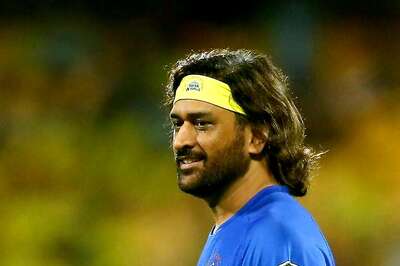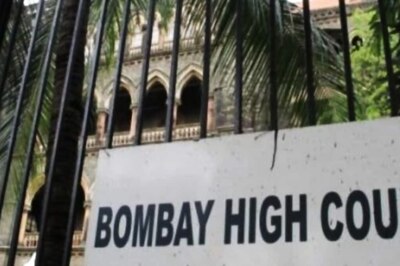
views
Gandhinagar: Anandiben Patel, who succeeds Narendra Modi as the new Gujarat Chief Minister, is seen as a disciplinarian and hard taskmaster who puts a premium on probity, qualities often associated with her predecessor.
The 73-year-old Modi loyalist, the first woman Chief Minister of Gujarat, was seen as a natural heir to the Prime Minister-designate as she headed the group of ministers tasked with the responsibility to run the state's day-to-day affairs during his hectic Lok Sabha campaign.
In Gujarat, Patel and Amit Shah are often described as Modi's "left and right arms".
Patel holds the key portfolios of urban development, revenue and disaster management and was earlier in charge of education ministry, driving successfully some of the key Modi projects, including boosting of female literacy.
The choice of Patel also takes into account the BJP's social arithmetic as the Patel community is the largest and most influential caste in the state and the backbone of its support base for over more than two decades.
Known for her no-nonsense image, she is the longest serving BJP minister who joined the party in late 80s and rose steadily through the ranks.
Married to Mafatbhai Patel, a professor, she has been living away from her family since mid-1990s and they have a son and a daughter.
Mafatbhai had announced his plan to fight Lok Sabha elections on the Aam Aadmi Party ticket but was reportedly talked out of it by their children. He has postponed a trip to abroad, anticipating her appointment as the new CM so that he could attend her oath-taking ceremony.
Patel shot into fame when as a school teacher she jumped into Sardar Sarovar reservoir in 1987 to save two girls from drowning.
Besides winning a gallantry award from the Governor, her heroics also caught the attention of BJP leaders, some of whom were familiar with her husband, who wanted the educated and brave woman to join their party as such a woman leader was almost a rarity at that time.
As a teacher too, she had received government awards. She and Modi worked together in BJP since she joined the party as he as the RSS pracharak would regularly interact with the state party leaders and their career graphs also rose simultaneously.
She was the only woman leader who joined the then BJP President Murli Manohar Joshi in unfurling the tricolour at Lal Chowk in Srinagar in 1992 and was elected as a Rajya Sabha MP two years later.
Always seen as a talented leader in the party, she was asked to contest assembly elections in 1998 and became a minister of state in the then Keshubhai Patel government.
She made no bones about her loyalty to Modi as she maintained her association with him even when he was banished from the state due to internal strife in party.
Modi gave her key portfolios as her stature rose and she was soon seen as his most trusted cabinet colleague.
As the education minister, she is credited with putting in an institutional mechanism to deal with transfers and postings of teachers in place of an ad-hoc regime, which was seen as breeding corruption.
Patel leads a frugal life and travels extensively across the state, monitoring government projects, interacting with officials and people.
One of her limitations, many party leaders say, is her not-so-friendly approach with party leaders and workers but she has often brushed such criticism aside, saying she should be judged not by the smile on her face but her work.




















Comments
0 comment